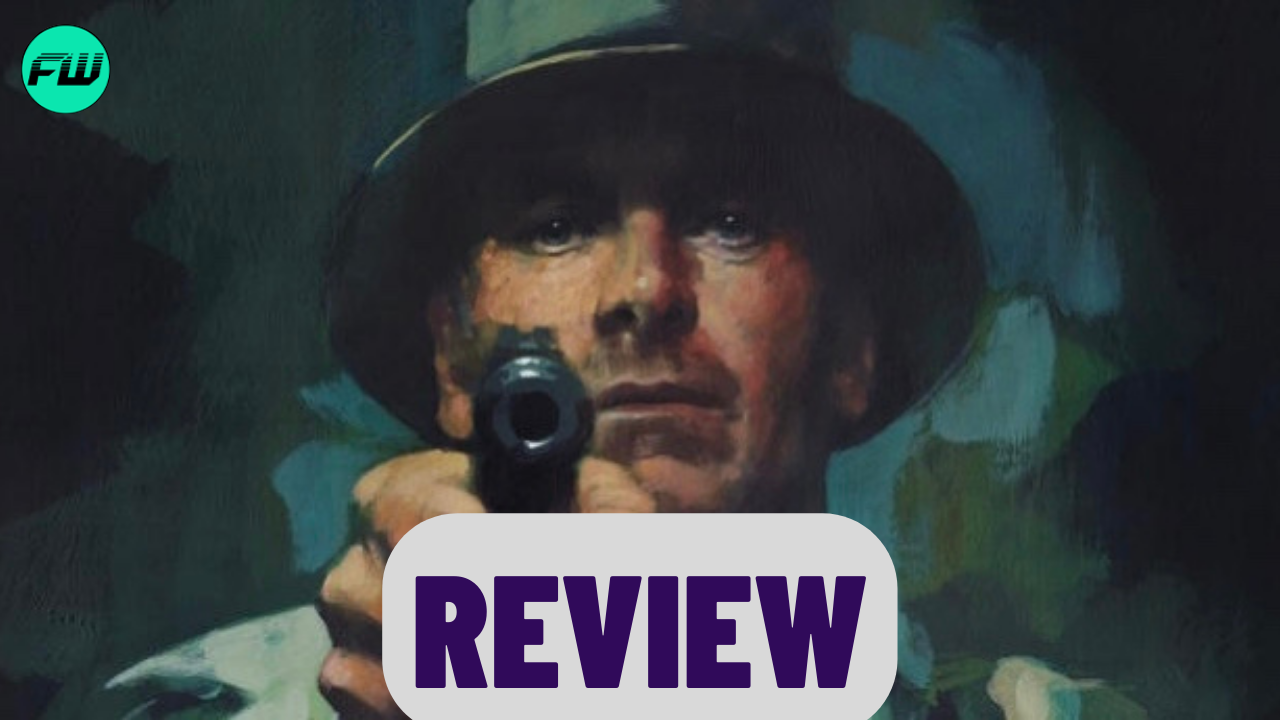Expectations for a considerable portion of the films at the 80th Venice International Film Festival were high, but for the new movie from David Fincher, one of my all-time favorite filmmakers, these were at a whole other level. From Se7en to Mank, the director simply cannot deliver a bad cinematic work, and it’s common to see several of his projects in articles and lists about the best films of the year, decade, or cinema history. The Killer holds a vengeful premise as straightforward as its title, but does it meet the massive anticipation?
The Killer Critique

Also Read: Poor Things Venice Film Festival Review
I admit the personal error of placing a lot of, perhaps too much, responsibility on Fincher’s flick to leave me completely enraptured. In the same way that low expectations can turn a mediocre viewing into a surprisingly enjoyable experience, the overwhelming desire for a movie to be a flawless masterpiece can hurt the respective watch, analysis, and enjoyment. Thus, I cannot hide my disappointment that The Killer isn’t as good as I wanted it to be, but I must emphasize that it still is an incredibly competent film loaded with intense levels of tension and suspense.
Fincher stated that one of the goals of his 12th movie – 11th if we ignore Alien 3 – was precisely to renew notions he had about storytelling and what really hooks the viewer. Together with his curiosity for the subgenre of revenge arcs as a ride of constant tension, The Killer is, without a doubt, the simplest, most straightforward, and superficial narrative of his filmography. Naturally, these aspects have their pros and cons…
On one hand, Fincher wastes no time in placing the viewers during the mission that originates the respective premise of a hired killer who fails his objective. The Killer is narrated by the protagonist himself (Michael Fassbender), using his thoughts not only as one of the multiple mechanisms of tension and suspense but also as a very efficient method of setting the tone and rhythm of the film. The movie can be described as a collection of atmospheric sequences featuring exceptionally handled build-ups through gloomy cinematography (Erik Messerschmidt) and a pulsating score (Trent Reznor & Atticus Ross), culminating in a climactic moment where the anticipation, planning, agility, creativity, intensity, coldness, and dedication of the killer are demonstrated in an unpredictable, fascinating manner.
On the other hand, Fincher purposefully decides to strip The Killer of any emotional elements, world-building, secondary storylines, or character arcs. The film lacks any sort of connection with the protagonist and his targets, as well as answers to the hundreds of questions raised by the concepts introduced by the movie, specifically about the assassin organization, the means and resources available to them, or even remote explanations concerning the missions’ origin. The narrative structure easily becomes repetitive and redundant, falling into a predictable pattern without adding any relevant information or impactful motivation – Tilda Swinton (Asteroid City) is criminally underused.
THE KILLER is the simplest film of David Fincher’s career for better *and* for worse. A technically immersive, tension-driven experience lacking emotional layers related to nameless, superficial characters & underdeveloped world. Disappointingly satisfied. #TheKiller #Venezia80 pic.twitter.com/yuRWuubqgz
— Manuel São Bento @ #Venezia80 (@msbreviews) September 3, 2023
Simplicity and superficiality are two distinct terms, and The Killer is indisputably characterized by both. The first concept fits perfectly with Fincher’s mission to create a journey of pure revenge without detours or pauses. Evidently, Fassbender’s (Dark Phoenix) narration addresses ethical and moral themes that haunt or drive an assassin, depending on how they see them, but here’s where the second term comes into play. The lack of a backstory for the protagonist, more potent motivations, and an emotionally compelling justification for accompanying the killer are narrative holes too big to accept unconditionally.
The Killer is one of those typical cinematographic cases where the filmmaker’s idea and execution are perfectly synchronized, but which a spectator admires and respects more than they actually enjoy. Technically, Fincher and screenwriter Andrew Kevin Walker (Windfall) – who works with the director once more after Se7en – deliver the film exactly as they imagined, but it’s not easy to experience a story where the audience is supposed to feel nothing for the characters presented on the big screen. Fortunately, that layer – perhaps the only one in the movie – of continuous tension is enough to take the film to safe harbor, with the help of remarkable technical aspects, and a hypnotizing main performance.
Fassbender is hauntingly mesmerizing with his menacing, subtly powerful portrayal of a killer with no scruples or mercy. His impressively calm, collected voice-over voice is essential to The Killer‘s somber environment, as are the aforementioned cinematography and score. These three elements are crucial to the movie’s success, firmly controlled by Fincher who, regardless of the issues already stated, never loses the direction he wants to follow.
The Killer is divided into six chapters, plus an epilogue. Like all other narrative aspects of the film, it carries its advantages and disadvantages. It helps punctuate the sub-missions, making each chapter feel like a kind of short flick that follows the assassination of a specific target – the fifth chapter contains a brutally choreographed fight sequence that deserves this mention. However, it also leaves the moment when that repetitive cycle restarts even more in sight, gradually losing its surprise factor. In fact, after a certain point, the only unpredictability lies in when and how Fassbender will attempt to kill his next target.

Picking up on the second paragraph of this article, The Killer may well fit into that situation, but there’s also a part of my subconscious that might make me more lenient towards one of my favorite filmmakers. It’s by no means an unusual position in the world of criticism, but it’s nonetheless a complex scenario. Usually, a second viewing away from the hype that surrounds the first experience helps to solidify an opinion, which is precisely what I will be doing at the next London Film Festival. Until then, this opinion will hold a reasonable amount of disappointment, but with enough positive aspects to keep me slightly satisfied.
In Conclusion
The Killer is unquestionably the simplest, most straightforward movie of David Fincher’s career, for better and for worse. On one hand, Michael Fassbender’s melancholy narration and magnetic performance, as well as the moody cinematography and throbbing score, contribute to the immersive, tension-driven experience remarkably idealized and executed by the filmmaker. On the other hand, the lack of any emotional layer related to the superficial story and nameless characters, along with a repetitive structure devoid of secondary arcs, gradually alienates viewers from the equally underdeveloped fictional world. A case of admiration more than enjoyment.


